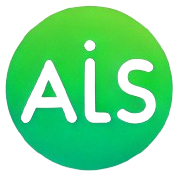Mastering Patient Engagement: Leveraging Chatbots Around the Clock
With the rapid advancement of technology, healthcare providers are constantly seeking innovative ways to engage with their patients and enhance the overall patient experience. One such technology that has gained significant popularity in recent years is the use of chatbots. Chatbots are revolutionizing the way healthcare providers interact with patients, providing instant support and information 24/7. In this article, we will explore the benefits of leveraging chatbots in healthcare and how they can improve patient engagement round-the-clock.
The Rise of Chatbots in Healthcare
Chatbots are AI-powered virtual assistants that are programmed to simulate human conversation. In healthcare, chatbots are being used to assist patients with a wide range of tasks, such as scheduling appointments, answering common medical questions, providing medication reminders, and offering emotional support. These virtual assistants are available on various platforms, including websites, messaging apps, and social media channels, making them easily accessible to patients.
The Benefits of Using Chatbots in Healthcare
There are numerous benefits to incorporating chatbots into healthcare settings, especially when it comes to patient engagement. Some of the key advantages include:
1. 24/7 Availability
One of the most significant advantages of chatbots is their ability to provide round-the-clock support to patients. Unlike human staff who have limited working hours, chatbots are available 24/7 to answer patient queries and provide assistance, ensuring that patients receive the support they need at any time of the day.
2. Instant Responses
Chatbots can provide instant responses to patient inquiries, eliminating the need for patients to wait on hold or wait for a callback. This real-time interaction enhances the patient experience and improves overall satisfaction with the healthcare provider.
3. Efficient Appointment Scheduling
Chatbots can streamline the appointment scheduling process by allowing patients to book appointments directly through the chat interface. This automation reduces the workload on administrative staff and ensures that appointments are scheduled promptly and accurately.
4. Personalized Health Information
By leveraging AI technology, chatbots can deliver personalized health information to patients based on their medical history and needs. This tailored approach not only enhances patient engagement but also helps patients better understand their health conditions and treatment options.

5. Cost-Effective Solution
Implementing chatbots in healthcare can result in cost savings for providers by reducing the workload on staff and streamlining administrative processes. Chatbots offer a scalable and cost-effective solution for enhancing patient engagement without the need for additional manpower.
Best Practices for Implementing Chatbots in Healthcare
While chatbots offer a range of benefits for healthcare providers, it is essential to implement them effectively to maximize their impact on patient engagement. Here are some best practices for leveraging chatbots in healthcare:
1. Define Clear Objectives
Before implementing a chatbot, clearly define the objectives you want to achieve, whether it is improving patient engagement, enhancing the patient experience, or streamlining processes. Setting clear goals will help you design a chatbot that meets your specific requirements.
2. Customize Responses
Personalization is key to effective patient engagement. Customize the responses of your chatbot to address the unique needs and preferences of your patients. Tailoring interactions based on patient data can significantly enhance the patient experience.
3. Ensure Data Security
When dealing with sensitive health information, data security is paramount. Ensure that your chatbot complies with all relevant privacy regulations and implements robust security measures to protect patient data from unauthorized access.
4. Provide Seamless Integration
Integrate your chatbot seamlessly across different platforms and channels to ensure a consistent patient experience. Whether it is your website, mobile app, or social media pages, make sure that the chatbot is easily accessible to patients wherever they are.

5. Continuously Monitor and Improve
Regularly monitor the performance of your chatbot and gather feedback from patients to identify areas for improvement. Use analytics to track key metrics such as response times, user engagement, and satisfaction levels, and make adjustments to enhance the chatbot’s effectiveness.
Case Studies: Successful Implementation of Chatbots in Healthcare
To further illustrate the impact of chatbots on patient engagement, let’s explore some successful case studies of healthcare providers who have effectively implemented chatbot technology:
1. Mayo Clinic
Mayo Clinic, a renowned healthcare institution, implemented a chatbot named “Dr. Chatbot” to provide patients with personalized health information, appointment scheduling assistance, and medication reminders. The chatbot has significantly improved patient engagement and satisfaction levels, leading to a more seamless healthcare experience.
2. Babylon Health
Babylon Health, a digital healthcare provider, offers a chatbot service that allows patients to check their symptoms, receive medical advice, and book appointments with healthcare professionals. The chatbot has proven to be a popular and effective tool for engaging patients and empowering them to take control of their health.
3. Providence St. Joseph Health
Providence St. Joseph Health integrated a chatbot named “Grace” into their patient portal to assist patients with navigating their healthcare journey, accessing medical records, and scheduling appointments. The chatbot has streamlined processes for patients and enhanced their overall experience with the healthcare provider.
Conclusion
Chatbots are transforming the way healthcare providers engage with patients, offering a convenient and efficient means of communication round-the-clock. By leveraging chatbot technology, healthcare providers can enhance patient engagement, improve the patient experience, and achieve better health outcomes. To master patient engagement, healthcare organizations should consider incorporating chatbots into their operations and following best practices to ensure a seamless and effective implementation.
Are you ready to revolutionize patient engagement in your healthcare practice? Explore the possibilities of leveraging chatbots around the clock and witness the positive impact on patient satisfaction and outcomes.

